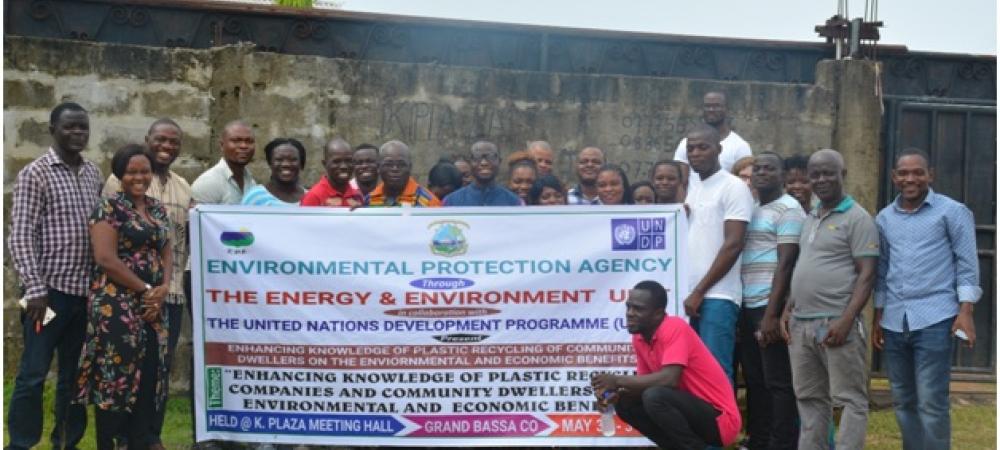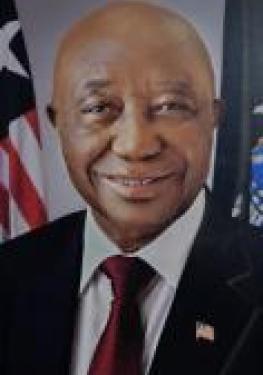
The Environmental Protection Agency of Liberia (EPA) in collaboration with the United Nations Development Programme (UNDP) has begun a two-day stakeholders’ awareness workshop on the benefits of plastic recycling.
The workshop which commenced Thursday, 30 May 2019 in Buchanan, Grand Bassa County, is being held under the theme: “Enhancing Knowledge of Plastics Recycling Companies and Community dwellers on the Environmental and Economic Benefits”.
About 50 participants, most of whom are major stakeholders in the plastic business from Nimba, Grand Bassa, Bong, and Margibi Counties are attending the training and awareness workshop.
The workshop is intended to give them the requisite knowledge, skills to properly handle and recycle plastic to their economic benefit.
The EPA and UNDP are charged with the responsibilities to supervise all energy and environment projects.The energy and environment unit has an overall objective which seeks to enhance reduction in vulnerability and improve adaptation to climate change through early warning systems. The enhancement of environmental management as a basis for sustainable economic development.
The energy and environment unit has also identified several activities as part of her core tasks within the 2019 annual work plan. With this, the E & E unit will conduct a regional training workshop on a regular basis aimed at improving awareness and educating community dwellers and plastic recycling companies.
Plastic recycling is the process of recovering scrap or waste plastic and reprocessing the material into useful products.There are currently several recycling companies in the country, especially dealing with water and scrap companies.
However, there is not much information on the environmental and economic benefits and the policies or laws relative to the Liberian laws and other best practices.
There is little knowledge among the population, specifically rural dwellers, which gaps the training intends to strengthen, with an expected output.
These outputs include; participants increased knowledge in plastic recycling, processes, stages and benefits, participants being aware of the impacts plastic waste have on the environment, especially amongst women and children and participants advancement on best environmental practices in doing plastic recycling.
At the opening of the training workshop, the Deputy Executive Director of the EPA, Hon. Randall M. Dobayou, II said the presence of the EPA at the training is to enhance knowledge of plastic users and stakeholders across the country.
Hon. Dobayou: “The program focuses on plastic recycling and the economic benefits to community dwellers. Plastic is non-biodegradable,it affects our soil and leads to soil infertility which negatively impacts agriculture and groundwater. We are encouraged to also stop burning plastic because when plastics are burnt,they release poisonous gases such as Carbon Monoxide, furans and Dioxins. As you may be aware, human production of plastic as of 2009 is 8.3 billion tons of which 6.3 billon tons is waste with the recycling rate of only 9%, which suggests that more efforts are needed to tackle plastic pollution. The EPA is joining the rest of the world is now acting to tackle plastic pollution-the support of everyone is needed,” he said.



